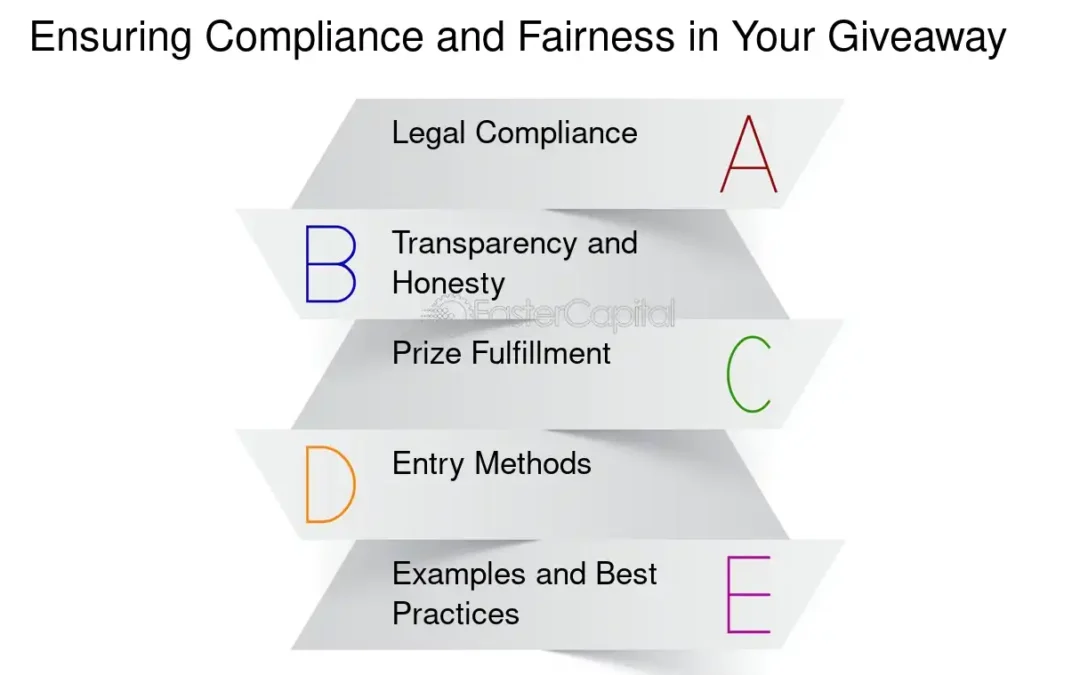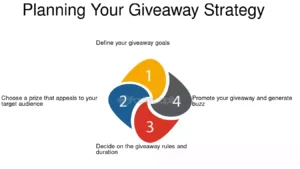Marketing promotions like sweepstakes and contests drive engagement and attract customers. Yet, their success hinges on navigating legal gray areas and ethical dilemmas. One critical question arises: should winners be allowed to resell their rewards? This issue impacts brand trust, legal compliance, and long-term business strategy.
Sponsors often assume prizes remain with winners as promotional souvenirs. However, high-value items—cars, vacations, or cash—can tempt recipients to sell them. While this seems harmless, businesses must consider contractual obligations and state laws. For example, some states tax prize transfers or require disclosures in official rules.
Clear policies protect companies from backlash. Ambiguous terms may lead to lawsuits or damage consumer relationships. Transparency about prize ownership rights builds credibility. It also ensures participants understand restrictions upfront, avoiding disputes post-campaign.
Key Takeaways
- Legal compliance is non-negotiable for promotions involving resaleable rewards.
- Restricting prize sales can safeguard brand reputation but may alienate winners.
- Federal and state regulations often dictate transferability terms for high-value items.
- Marketing campaigns must prioritize transparency in contest rules and prize conditions.
- Ethical decisions around prize policies directly influence customer loyalty and trust.
Understanding Sweepstakes Promotions
Engaging customers through giveaways requires understanding key legal distinctions. While promotions spark excitement, mislabeling a game of chance as a skill-based contest could lead to costly violations. The Federal Trade Commission (FTC) strictly monitors these activities to prevent deceptive practices.
Defining Sweepstakes, Contests, and Lotteries
Three terms dominate promotional marketing:
- Sweepstakes: Winners chosen randomly. No entry fee or skill required.
- Contests: Judged on merit. Creativity or talent determines success.
- Lotteries: Combine chance, payment, and prizes. Illegal for private use.
| Type | Basis | Consideration | Legality |
|---|---|---|---|
| Sweepstakes | Chance | None | Legal |
| Contests | Skill | None | Legal |
| Lotteries | Chance + Payment | Required | Illegal* |
*Exceptions for state-run lotteries
The Evolution of Promotional Strategies
Early promotions relied on mail-in entries. Today, digital campaigns dominate. Social media integrations and instant-win features boost participation. However, modern rules demand clarity on prize ownership. Brands now face double scrutiny—from regulators and tech-savvy consumers.
Transparency remains non-negotiable. Clear terms prevent disputes over prize transfers. For example, stating whether winners can sell rewards avoids backlash. Adapting strategies while respecting core ethics ensures lasting trust.
The Ethics of Selling Your Sweepstakes Prizes
When someone wins promotional rewards, a tension emerges between personal rights and marketing goals. Should recipients freely sell items they’ve won, or do companies have ethical grounds to restrict transfers?
Stakeholder Perspectives
Winners often view rewards as personal property. One survey found 68% believe they should control items after receipt. "Once it’s mine, the choice is mine," states a frequent contest participant. This mindset fuels secondary markets where luxury vacations or electronics get resold quickly.
Sponsors face different challenges. Allowing sales might dilute campaign impact—imagine seeing branded merchandise on eBay weeks after a launch. Yet strict bans could spark negative publicity. Clear rules become essential:
- Disclose transfer policies in official guidelines
- Specify tax implications for high-value items
- Ban professional entrants through entry limits
Casual participants risk disadvantage when resale markets thrive. A parent entering for family tickets competes against resellers aiming for profit. Transparent odds and anti-fraud measures help maintain fairness. Companies balancing these concerns build lasting trust while respecting winner autonomy.
Legal Landscape and Regulatory Compliance
Navigating promotional rules demands understanding layered oversight. Federal and state laws create overlapping responsibilities for businesses running giveaways. Sponsors must juggle FTC guidelines with local registration requirements to avoid penalties.
Federal vs. State Regulations
The Federal Trade Commission sets nationwide standards for honesty in promotions. Rules ban deceptive claims about odds or prize availability. Yet state lawmakers add extra layers. New York and Florida mandate registration for games with prizes over $5,000. Rhode Island triggers rules at just $500 for retail-based giveaways.
This patchwork creates compliance headaches. "Arizona’s purchase-for-entry rule catches many brands off guard," notes a consumer law attorney. Always design campaigns to meet the strictest state laws in your target regions.
Registration and Bonding Requirements
High-value promotions often need financial safeguards. Four states require bonding – a cash guarantee prizes will be delivered:
| State | Prize Threshold | Key Requirement |
|---|---|---|
| New York | $5,000+ | Bond equal to prize value |
| Florida | $5,000+ | Registered agent needed |
| Rhode Island | $500+ | Retail location disclosure |
| Arizona | Any value | Registration if entry requires purchase |
These requirements protect both companies and participants. Proper filings prevent legal disputes over prize transfers. Always consult counsel before restricting resale rights – some state courts uphold winner ownership claims.
Best Practices for Ethical Sweepstakes Marketing
Creating fair promotional campaigns requires balancing legal safeguards with participant trust. Two critical strategies ensure compliance while fostering goodwill: alternate entry methods and digital transparency.

Implementing an Alternate Method of Entry (AMOE)
Every sweepstakes must include a free entry method to avoid lottery law violations. AMOE systems let participants enter without buying products. For example, mail-in submissions or online forms provide equal chances to win.
Key AMOE requirements:
- Free entries must match paid options in quantity limits
- Entry processes should take under 5 minutes
- Deadlines and winner selection must align with paid entries
| Entry Type | Cost | Submission Limit |
|---|---|---|
| AMOE | $0 | 1 per day |
| Purchase-Based | $5+ | 10 per day |
Digital Compliance and Transparent Rules
Clear official rules prevent misunderstandings. Disclose all entry methods on websites, social posts, and ads. Use plain language to explain:
- Eligibility criteria
- Prize transfer restrictions
- Tax responsibilities for winners
Update digital platforms in real-time during campaigns. Broken links or outdated information erode trust. Regular audits ensure compliance across states with varying laws.
Navigating Business Impacts and Consumer Trust
Promotional campaigns walk a tightrope between expanding reach and maintaining trust. While giveaways attract diverse audiences, companies must assess how prize policies shape brand perception. A teenager winning luxury items or out-of-state participants claiming rewards can create logistical headaches. Setting 18+ eligibility helps avoid enforceability issues with minors.
Risk Mitigation Strategies
Businesses face backlash if winners feel restricted. Clear rules about prize transfers prevent legal challenges. For example, stating upfront whether items can be sold builds credibility. Policies should align with state laws while protecting company interests in campaign integrity.
Building and Maintaining Consumer Confidence
Transparency is key. Over 60% of participants check official rules before entering. Surprise restrictions damage trust. Consistent policies across all marketing efforts help. If one campaign allows prize sales but another bans them, confusion erodes audience loyalty.
Analyzing your target audience prevents missteps. Younger demographics often expect ownership freedom, while older groups prioritize clarity. Regular policy reviews ensure campaigns adapt without compromising core values.
Conclusion
Balancing ethical practices with legal compliance remains critical for successful promotions. Modern contests sweepstakes serve dual purposes: driving immediate engagement while building lasting brand value. Companies achieve this through transparent rules addressing prize transfers and winner obligations.
Effective promotions prioritize fairness. Clear disclosures about odds of winning and entry requirements prevent disputes. Digital campaigns must adapt rules across platforms while meeting age and jurisdictional standards.
Future success hinges on three pillars:
- Updating terms to reflect evolving laws within 30-60 days
- Designing giveaway structures that discourage professional entrants
- Maintaining skill-based elements where appropriate to ensure legal compliance
Responsible sponsors recognize that sweepstakes contests shape consumer trust. By aligning policies with participant expectations and state regulations, businesses create sustainable promotional strategies that benefit all stakeholders.

